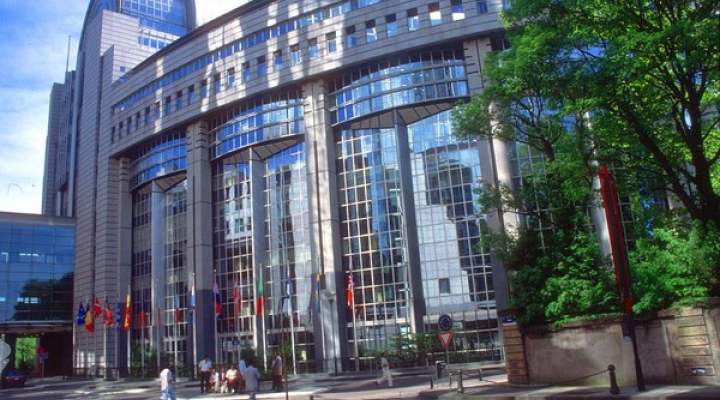The situation of the Hungarian community in Subcarpathia, presented in the EP
The European Parliament’s Intergroup for Traditional Minorities, National Communities and Languages held an extraordinary meeting on 7 February. During the meeting, two Hungarian politicians from the Zakarpattia Oblast (Subcarpathia) region of Ukraine, Miklós Kovács, president of the Cultural Association Of Hungarians in Subcarpathia and László Brenzovics, deputy president of the Subcarpathian Regional Council presented the situation of the Hungarian community in in the region and the political stakes of the upcoming Ukrainian elections.
Miklós Kovács made a detailed analysis of the challenges the 150 000 strong Hungarian community will face in the near future. The community managed to obtain representation in the Ukrainian Parliament on three occasions, namely following the elections of 1994, 1998 and 2002. The community lives in a well-defined geographic area and has shown a disciplined voting behavior. Hungarian leaders fear that for the elections scheduled for 28 October a mixed electoral system will be introduced, which would redefine the electoral colleges. The disregard of the natural geographic realities would be fatal to the Hungarian community: it is expected that they would lose their representation in Parliament. The new electoral colleges will probably be defined during the course of May. Through their visit to Brussels, Miklós Kovács and László Brenzovics attempt to raise awareness in the international community about the redefinition of electoral colleges that would make minority representation in the Ukrainian Parliament impossible, a fact that can be considered an imminent infringement of Ukraine’s international obligations, since it has ratified the Council of Europe’s Framework Convention for the Protection of National Minorities and the European Charter for Regional or Minority Languages. Co-president of the Intergroup, Csaba Tabajdi was interested in the possibility that ethnic Hungarians could protest against this measure in alliance with other minorities in Ukraine. MKP’s MEP Edit Bauer from Slovakia inquired whether the redefinition of electoral colleges discriminates against other minorities as well.
DAHR’s MEP Csaba Sógor said that nation states spend too much energy in trying to push minorities out of national parliaments. This can sometimes have disastrous consequences, as the example of Serbia shows. The right way would be to implement democratic solutions. The guests also presented the situation of education in Hungarian language, at the request of MKP’s Alajos Mészáros.
László Brenzovics said that he hoped that the issue of the electoral system would be solved, perhaps due to international attention, just like in other Central and Eastern European states (Hungary, Romania, Slovenia, Serbia). The Hungarian community cannot rely on other minorities from Ukraine because of the large differences in linguistic, religious, political and cultural backgrounds. He also stated that the Hungarian education system is in a worrisome situation. The community faces a shortage of teachers and textbooks. Only half as many Hungarians reach the higher education system as Ukrainians. This is the result of a strict admission exam that requires candidates to have advanced level knowledge of the Ukrainian language. The situation of those who obtain diplomas abroad is also not settled. Many of them would come home, but they can homologate their diplomas only through a lengthy and expensive process. FIDESZ’s Kinga Gál said that it is important to compel states to fulfill their international obligations. MEPs have a decisive role to play in this process because they can raise awareness about theses issues. Thus, minority communities outside the EU can rely on them.
The attending MEPs decided that they would inform Ukraine’s ambassador to the EU on their position and invite him to intervene in the settlement of the situation.
More information:
http://www.coe.int/t/dghl/monitoring/minorities/default_en.asp
http://www.coe.int/t/dg4/education/minlang/default_en.asp











